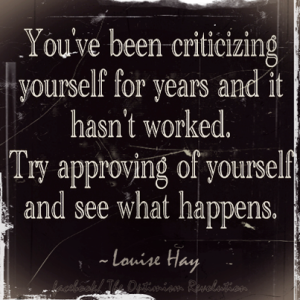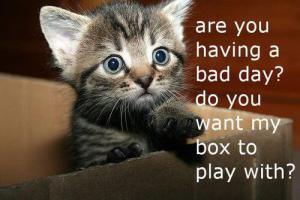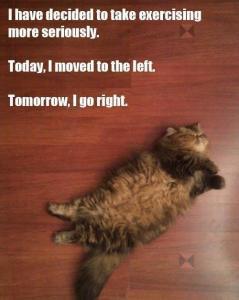Valerie Parv's Blog, page 8
May 3, 2015
First Monday Mentoring for May – 4 things sensible writers refuse to lose sleep over
When I was a young writer, I leased an office from a friend who’d written several novels, although none were published. He had all kinds of systems such as writing a certain number of words per paragraph, allocating so many paragraphs to different aspects of the story, and so on.
I suspected this wasn’t a good approach, but he’d written books and I hadn’t, so I kept quiet. Then he said there was no point in writing “just another novel.” I should aim to write a best-seller. Nothing less was worthwhile.
Now I knew we had a problem. I’d published my first paid article in the Australian Women’s Weekly when I was 14, and studied dozens of books on writing craft. Some I agreed with, some I didn’t, but I knew a best-seller wasn’t something you could write. All you could do was write the best book you could at the time. The rest would be up to readers to decide.
Eighty-five books later, I stand by this belief. My friend never did publish a novel, and no wonder. There are simply some aspects of this business we must accept as being out of our control. Here are four of them:
1. The state of the publishing industry
As long as I’ve been writing, publishing has been changing and this will continue long after we’re gone. We can’t stop editors from moving on, however much we loved working with them. Nor can we stop lines closing, publishers merging, or Amazon from changing the rules for indie publishers.
We most certainly can’t make readers want our zombie angel books when they’re clamoring for Regency westerns. Or whatever is in vogue at a given time. All we can do is write books we love, and hope others will love them, too.
The rise of indie publishing has opened new doors when more traditional doors are closing. Even so, there are plenty of trad-pub houses wanting submissions, agents seeking clients, and editors you can hire, no matter which way you choose to go.
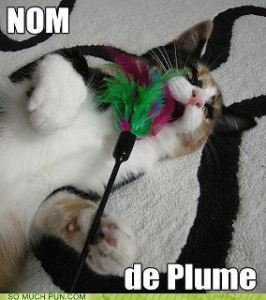
2. How long it takes to “make it”
This is a purely subjective measurement which also changes frequently. If you’re unpublished, you want to see your book in print or ebook. Then you want your second book out. And your third ad infinitum. If friends are published, you’re envious of them, especially if you’ve been plugging away for years and they have their first submission accepted.
No matter where you are on the career ladder, there’s always another rung ahead. New York Times’ best-selling authors want to be number #1. Then they want every book to make the list. And preferably be optioned by Hollywood. There’s really no end to the stages until they prize your stylus from your cold, dead hand.
Your career is yours alone; your books written at whatever pace suits. As the Desiderata says, “Never compare yourself to others, for always there will be greater or lesser persons than yourself.” For every high-flyer above you, there are many more writers on the rungs below, envying you.
3. What other people think
This applies to everyone from editors and agents, to your mother and your bestie, particularly if the BFF is also a writer. Many factors affect how they read your work. For editors and agents, it’s the commercial nature of the work. Will it fit their house’s publishing program? Have they accepted something similar already? Does your book compete with their lead author?
Families will read your work looking for themselves within the pages. Having found themselves (they think), they wonder how their friends will react. If your book is sexy, will your community be shocked? Writers may envy the fabulous job you’ve done, or drown you in suggestions to make the work better. None of these people is unbiased. Their opinions are exactly that, opinions.
Have the courage to listen to the input then decide for yourself which suggestions you take on board. You don’t want your book to read as if it were written by a committee because you tried too hard to please everybody.
4. How old you are before you start writing
If you’ve had a career in another field, you may not be able to write until retirement. If you’ve raised a family, you may have put your dreams on hold while nurturing theirs. There are many reasons why your books remain unwritten. None of them matter. If it’s in you to write, you will write as soon as you possibly can. Perhaps you’ve scribbled in journals for years, or have a file full of ideas waiting for you to attend to them, so in a sense, you’ve already begun.
Sensible writers start when they can, doing as much as life allows. Remember the woman in her fifties who told a friend she’d like to study law and become a lawyer, but she’d be over 60 before she qualified. Wisely, the friend asked her, “How old will you be if you don’t study?”
Two inspirational people who blog at Marc and Angel Hack Life said this week, “Never let someone’s opinions become your reality” http://tinyurl.com/m7yn9hv
Likewise, don’t let your opinions become your reality unless they align with your dreams.
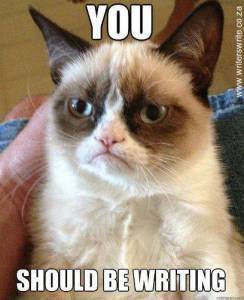
Now over to you. Do you lose sleep over any of these beliefs? Share your thoughts in the comments box below. It’s moderated to avoid spam, but you can have your post appear right away by clicking on “sign me up” at right. I don’t share your details with anyone.
Valerie
http://www.valerieparv.com
on Twitter @ValerieParv and Facebook
Order Valerie’s Beacons’ book, Birthright, at http://tinyurl.com/mxtmbx6
Check out Valerie’s online course, Free the Writer in You
at http://valerieparv.com/course.html


First Monday Mentoring for May ��� 4 things sensible writers refuse to lose sleep over
When I was a young writer, I leased an office from a friend who���d written several novels, although none were published. He had all kinds of systems such as writing a certain number of words per paragraph, allocating so many paragraphs to different aspects of the story, and so on.
I suspected this wasn���t a good approach, but he���d written books and I hadn���t, so I kept quiet. Then he said there was no point in writing ���just another novel.��� I should aim to write a best-seller. Nothing less was worthwhile.
Now I knew we had a problem. I���d published my first paid article in the Australian Women���s Weekly when I was 14, and studied dozens of books on writing craft. Some I agreed with, some I didn���t, but I knew a best-seller wasn���t something you could write. All you could do was write the best book you could at the time. The rest would be up to readers to decide.
Eighty-five books later, I stand by this belief. My friend never did publish a novel, and no wonder. There are simply some aspects of this business we must accept as being out of our control. Here are four of them:
1. The state of the publishing industry
As long as I���ve been writing, publishing has been changing and this will continue long after we���re gone. We can���t stop editors from moving on, however much we loved working with them. Nor can we stop lines closing, publishers merging, or Amazon from changing the rules for indie publishers.
We most certainly can���t make readers want our zombie angel books when they���re clamoring for Regency westerns. Or whatever is in vogue at a given time. All we can do is write books we love, and hope others will love them, too.
The rise of indie publishing has opened new doors when more traditional doors are closing. Even so, there are plenty of trad-pub houses wanting submissions, agents seeking clients, and editors you can hire, no matter which way you choose to go.

2. How long it takes to ���make it���
This is a purely subjective measurement which also changes frequently. If you���re unpublished, you want to see your book in print or ebook. Then you want your second book out. And your third ad infinitum. If friends are published, you���re envious of them, especially if you���ve been plugging away for years and they have their first submission accepted.
No matter where you are on the career ladder, there���s always another rung ahead. New York Times��� best-selling authors want to be number #1. Then they want every book to make the list. And preferably be optioned by Hollywood. There���s really no end to the stages until they prize your stylus from your cold, dead hand.
Your career is yours alone; your books written at whatever pace suits. As the Desiderata says, ���Never compare yourself to others, for always there will be greater or lesser persons than yourself.��� For every high-flyer above you, there are many more writers on the rungs below, envying you.
3. What other people think
This applies to everyone from editors and agents, to your mother and your bestie, particularly if the BFF is also a writer. Many factors affect how they read your work. For editors and agents, it���s the commercial nature of the work. Will it fit their house���s publishing program? Have they accepted something similar already? Does your book compete with their lead author?
Families will read your work looking for themselves within the pages. Having found themselves (they think), they wonder how their friends will react. If your book is sexy, will your community be shocked? Writers may envy the fabulous job you���ve done, or drown you in suggestions to make the work better. None of these people is unbiased. Their opinions are exactly that, opinions.
Have the courage to listen to the input then decide for yourself which suggestions you take on board. You don���t want your book to read as if it were written by a committee because you tried too hard to please everybody.
4. How old you are before you start writing
If you���ve had a career in another field, you may not be able to write until retirement. If you���ve raised a family, you may have put your dreams on hold while nurturing theirs. There are many reasons why your books remain unwritten. None of them matter. If it���s in you to write, you will write as soon as you possibly can. Perhaps you���ve scribbled in journals for years, or have a file full of ideas waiting for you to attend to them, so in a sense, you���ve already begun.
Sensible writers start when they can, doing as much as life allows. Remember the woman in her fifties who told a friend she���d like to study law and become a lawyer, but she���d be over 60 before she qualified. Wisely, the friend asked her, ���How old will you be if you don���t study?���
Two inspirational people who blog at Marc and Angel Hack Life said this week, ���Never let someone���s opinions become your reality��� http://tinyurl.com/m7yn9hv
Likewise, don���t let your opinions become your reality unless they align with your dreams.

Now over to you. Do you lose sleep over any of these beliefs? Share your thoughts in the comments box below. It���s moderated to avoid spam, but you can have your post appear right away by clicking on ���sign me up��� at right. I don���t share your details with anyone.
Valerie
http://www.valerieparv.com
on Twitter @ValerieParv and Facebook
Order Valerie���s Beacons��� book, Birthright, at http://tinyurl.com/mxtmbx6
Check out Valerie���s online course, Free the Writer in You
at http://valerieparv.com/course.html


April 4, 2015
First Monday mentoring for April – 4 ways good writers avoid fooling themselves
Yesterday I discovered I’d been driving an unregistered car for who knows how long. I hadn’t overlooked the paperwork. My car was registered until the middle of this year. Unfortunately, the car registry computer had been told otherwise. A missed key stroke or other error had fooled it into thinking my license plates had been handed back to an office in Sydney, five hours’ drive away.
The only solution was for me to take my car to the nearest registry and have them physically verify that the plates were still on my car. They did, and all was well, but to sort the problem out, I had to risk driving unregistered.
I don’t usually catastrophise but even my positive outlook was shaken by all the things that could have gone wrong.
The first was that I could have delayed opening the letter, worried it contained a traffic fine I’d been unaware of incurring. Or I could have been so confident my registration was OK I’d left the letter for later.
Luckily, I didn’t fool myself into leaving the letter untouched. I took immediate action and all was well.
I realized that the habit of not fooling myself works with writing as well. I’d dodged the first two of the ways many writers fool themselves. Check to see if you recognize any of them.
1. I can write it tomorrow.
None of us is guaranteed another breath, far less another day. This isn’t gloom and doom; it’s simply a reality check. Even if you do live to tomorrow, and I pray you will, tomorrow brings its own issues. You could spend half a day fixing a problem you hadn’t expected, like me with my car. There went the precious hours I’d planned to spend writing. Luckily I’d kept my bargain with myself and written the day before, and the one before that. Losing a couple of hours wasn’t a disaster, but what if today had been the only day I’d set aside to enter a competition or meet a deadline?
Good writers don’t put off writing. They write today and every other working day, even if it’s only a couple of sentences.

You may fool others, but never yourself
2. Someone else has already written my story.
They may have written about the same events, but they haven’t written “your” story. A very dear friend talked a lot about a story she wanted to write about what she called the battle of Sydney, when Japanese mini submarines invaded Sydney Harbour. Working for ABC Radio, she’d had a box seat to see the events of that night unfold. Her perspective was unique; her writing style very much her own. Yet she passed away with the book unwritten for a whole stack of reasons, I suspect mostly 1. and 2. here.
Good writers tell their own stories in their own way.
3. I don’t have time to write.
If we let excuses make the running, the joke is definitely on us. Nobody ever has all the time they need to write. In my book, The Idea Factory, I supply a long list of reasons not to write, from the weather to kids being home on holidays, to broken technology (there’s still paper and pen) to other demands on our time. There will always be reasons not to write. Writing is work. I tell others that I’m working rather than writing, because we’re hard wired to respect work. Writing is often seen as a hobby, something to be picked up or put down on a whim. Wrong, so wrong.
If you have a love affair with words, and stories you long to tell, you make time to write them. Good writers don’t fool themselves with excuses.
4. I’m not good enough to write this.
This is the saddest April fool’s joke of them all. Someone in your life – perhaps even you – made you think that you don’t have what it takes to be a writer. The real joke is that nobody knows what makes a writer.
You may be the worst writer in the whole world, although I doubt that, but how will you know what you can achieve until you try? No writer thinks they’re good enough, even those most of us regard as the greats. In my career, I’ve found the opposite to be true – the writers most strongly plagued by self doubt are usually those whose words make the sweetest reading. The story in your head is shining, perfect gold, but turns into base metal as soon as you start to write. Accept this as the way things are. Be glad of your fears because all the best writers have them.
Write your story in spite of your fears. Do the best you can at the time.
Now, over to you.
Do you resist these April fool’s jokes? Can you think of other ways writers might fool themselves? Share your thoughts in the comments box below. It’s moderated to avoid spam, but you can have your post appear right away by clicking on “sign me up” at right. I don’t share your details with anyone.
Happy writing,
Valerie
http://www.valerieparv.com
on Twitter @ValerieParv and Facebook
Order Valerie’s Beacons’ book, Birthright, at http://tinyurl.com/mxtmbx6
Check out Valerie’s online course, Free the Writer in You
at http://valerieparv.com/course.html

First Monday mentoring for April ��� 4 ways good writers avoid fooling themselves
Yesterday I discovered I���d been driving an unregistered car for who knows how long. I hadn���t overlooked the paperwork. My car was registered until the middle of this year. Unfortunately, the car registry computer had been told otherwise. A missed key stroke or other error had fooled it into thinking my license plates had been handed back to an office in Sydney, five hours��� drive away.
The only solution was for me to take my car to the nearest registry and have them physically verify that the plates were still on my car. They did, and all was well, but to sort the problem out, I had to risk driving unregistered.
I don���t usually catastrophise but even my positive outlook was shaken by all the things that could have gone wrong.
The first was that I could have delayed opening the letter, worried it contained a traffic fine I���d been unaware of incurring. Or I could have been so confident my registration was OK I���d left the letter for later.
Luckily, I didn���t fool myself into leaving the letter untouched. I took immediate action and all was well.
I realized that the habit of not fooling myself works with writing as well. I���d dodged the first two of the ways many writers fool themselves. Check to see if you recognize any of them.
1. I can write it tomorrow.
None of us is guaranteed another breath, far less another day. This isn���t gloom and doom; it���s simply a reality check. Even if you do live to tomorrow, and I pray you will, tomorrow brings its own issues. You could spend half a day fixing a problem you hadn���t expected, like me with my car. There went the precious hours I���d planned to spend writing. Luckily I���d kept my bargain with myself and written the day before, and the one before that. Losing a couple of hours wasn���t a disaster, but what if today had been the only day I���d set aside to enter a competition or meet a deadline?
Good writers don���t put off writing. They write today and every other working day, even if it���s only a couple of sentences.

You may fool others, but never yourself
2. Someone else has already written my story.
They may have written about the same events, but they haven���t written ���your��� story. A very dear friend talked a lot about a story she wanted to write about what she called the battle of Sydney, when Japanese mini submarines invaded Sydney Harbour. Working for ABC Radio, she���d had a box seat to see the events of that night unfold. Her perspective was unique; her writing style very much her own. Yet she passed away with the book unwritten for a whole stack of reasons, I suspect mostly 1. and 2. here.
Good writers tell their own stories in their own way.
3. I don���t have time to write.
If we let excuses make the running, the joke is definitely on us. Nobody ever has all the time they need to write. In my book, The Idea Factory, I supply a long list of reasons not to write, from the weather to kids being home on holidays, to broken technology (there���s still paper and pen) to other demands on our time. There will always be reasons not to write. Writing is work. I tell others that I���m working rather than writing, because we���re hard wired to respect work. Writing is often seen as a hobby, something to be picked up or put down on a whim. Wrong, so wrong.
If you have a love affair with words, and stories you long to tell, you make time to write them. Good writers don���t fool themselves with excuses.
4. I���m not good enough to write this.
This is the saddest April fool���s joke of them all. Someone in your life ��� perhaps even you ��� made you think that you don���t have what it takes to be a writer. The real joke is that nobody knows what makes a writer.
You may be the worst writer in the whole world, although I doubt that, but how will you know what you can achieve until you try? No writer thinks they���re good enough, even those most of us regard as the greats. In my career, I���ve found the opposite to be true ��� the writers most strongly plagued by self doubt are usually those whose words make the sweetest reading. The story in your head is shining, perfect gold, but turns into base metal as soon as you start to write. Accept this as the way things are. Be glad of your fears because all the best writers have them.
Write your story in spite of your fears. Do the best you can at the time.
Now, over to you.
Do you resist these April fool���s jokes? Can you think of other ways writers might fool themselves? Share your thoughts in the comments box below. It���s moderated to avoid spam, but you can have your post appear right away by clicking on ���sign me up��� at right. I don���t share your details with anyone.
Happy writing,
Valerie
http://www.valerieparv.com
on Twitter @ValerieParv and Facebook
Order Valerie���s Beacons��� book, Birthright, at http://tinyurl.com/mxtmbx6
Check out Valerie���s online course, Free the Writer in You
at http://valerieparv.com/course.html

First Monday mentoring for April ��� 5 ways good writers avoid fooling themselves
Yesterday I discovered I���d been driving an unregistered car for who knows how long. I hadn���t overlooked the paperwork. My car was registered until the middle of this year. Unfortunately, the car registry computer had been told otherwise. A missed key stroke or other error had fooled it into thinking my license plates had been handed back to an office in Sydney, five hours��� drive away.
The only solution was for me to take my car to the nearest registry and have them physically verify that the plates were still on my car. They did, and all was well, but to sort the problem out, I had to risk driving unregistered.
I don���t usually catastrophise but even my positive outlook was shaken by all the things that could have gone wrong.
The first was that I could have delayed opening the letter, worried it contained a traffic fine I���d been unaware of incurring. Or I could have been so confident my registration was OK I���d left the letter for later.
Luckily, I didn���t fool myself into leaving the letter untouched. I took immediate action and all was well.
I realized that the habit of not fooling myself works with writing as well. I���d dodged the first two of the ways many writers fool themselves. Check to see if you recognize any of them.
1. I can write it tomorrow.
None of us is guaranteed another breath, far less another day. This isn���t gloom and doom; it���s simply a reality check. Even if you do live to tomorrow, and I pray you will, tomorrow brings its own issues. You could spend half a day fixing a problem you hadn���t expected, like me with my car. There went the precious hours I���d planned to spend writing. Luckily I���d kept my bargain with myself and written the day before, and the one before that. Losing a couple of hours wasn���t a disaster, but what if today had been the only day I���d set aside to enter a competition or meet a deadline?
Good writers don���t put off writing. They write today and every other working day, even if it���s only a couple of sentences.

You may fool others, but never yourself
2. Someone else has already written my story.
They may have written about the same events, but they haven���t written ���your��� story. A very dear friend talked a lot about a story she wanted to write about what she called the battle of Sydney, when Japanese mini submarines invaded Sydney Harbour. Working for ABC Radio, she���d had a box seat to see the events of that night unfold. Her perspective was unique; her writing style very much her own. Yet she passed away with the book unwritten for a whole stack of reasons, I suspect mostly 1. and 2. here.
Good writers tell their own stories in their own way.
3. I don���t have time to write.
If we let excuses make the running, the joke is definitely on us. Nobody ever has all the time they need to write. In my book, The Idea Factory, I supply a long list of reasons not to write, from the weather to kids being home on holidays, to broken technology (there���s still paper and pen) to other demands on our time. There will always be reasons not to write. Writing is work. I tell others that I���m working rather than writing, because we���re hard wired to respect work. Writing is often seen as a hobby, something to be picked up or put down on a whim. Wrong, so wrong.
If you have a love affair with words, and stories you long to tell, you make time to write them. Good writers don���t fool themselves with excuses.
4. I���m not good enough to write this.
This is the saddest April fool���s joke of them all. Someone in your life ��� perhaps even you ��� made you think that you don���t have what it takes to be a writer. The real joke is that nobody knows what makes a writer.
You may be the worst writer in the whole world, although I doubt that, but how will you know what you can achieve until you try? No writer thinks they���re good enough, even those most of us regard as the greats. In my career, I���ve found the opposite to be true ��� the writers most strongly plagued by self doubt are usually those whose words make the sweetest reading. The story in your head is shining, perfect gold, but turns into base metal as soon as you start to write. Accept this as the way things are. Be glad of your fears because all the best writers have them.
Write your story in spite of your fears. Do the best you can at the time.
Now, over to you.
Do you resist these April fool���s jokes? Can you think of other ways writers might fool themselves? Share your thoughts in the comments box below. It���s moderated to avoid spam, but you can have your post appear right away by clicking on ���sign me up��� at right. I don���t share your details with anyone.
Happy writing,
Valerie
http://www.valerieparv.com
on Twitter @ValerieParv and Facebook
Order Valerie���s Beacons��� book, Birthright, at http://tinyurl.com/mxtmbx6
Check out Valerie���s online course, Free the Writer in You
at http://valerieparv.com/course.html

March 1, 2015
First Monday Mentoring for March 2015 – what passions drive your writing?
Welcome to First Monday Mentoring for March.
As most of the world knows by now, the American actor, Leonard Nimoy, died on Friday. By early Saturday morning Australian time, the hashtag #RIPLeonardNimoy was one of the top trending topics on Twitter and Facebook, and his likeness dominated the world media on and offline.
Even if you aren’t a Star Trek fan, you probably recognized him as Mr. Spock, the logical, pointed-eared Vulcan from Star Trek’s original series which premiered in the 1960s. After Trek, Nimoy starred in series including Mission Impossible and In Search of, and was also a notable stage performer, director, poet, photographer, philanthropist and family man.

Nimoy’s last live convention appearance. Photo by Maria Jose Tenuto, used with thanks.
I knew him only slightly from my long involvement with the show when I helped organize conventions for fans, fund-raising to bring people from the show to Australia. Some, I’m still friends with today.
Writing eventually took me away from active fandom but my passion for Star Trek remained part of my life in many ways.
When I set up Australia’s first conference on romance writing, I brought Susan Sackett out to talk about the US market. The author of many Hollywood-related books, she co-wrote episodes of Star Trek the Next Generation and worked with Star Trek creator, Gene Roddenberry, for many years.
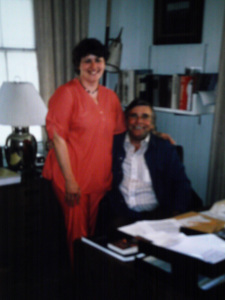
A younger me with Star Trek creator, Gene Roddenberry
I considered Gene Roddenberry one of my writing mentors. The technique he used to create the character of Mr. Spock is one I still use and share with the writers I mentor. Gene said he drew a line down the centre of a page, writing his questions for Spock on the left-hand side and the character’s “answers” on the right.
He said the answers may seem forced at first, but if you persevere, the character starts speaking back to you, often surprising you with insights you didn’t know were lurking deep in your subconscious.
When I talked with him about writing for Star Trek, Gene recommended creating my own characters and their universe rather than limiting my options to Paramount Studio’s requirements. It was many years before I fully took this advice, creating my alien Beacons and a series of books starting with Birthright (Corvallis Press, USA).
Even then, Star Trek hovered around the Beacons, challenging me to create my own technology and “world” – not easy considering Trek has a fifty-year head start, showcasing technology which was unheard-of back then, but is commonplace today.
Technology was far from Star Trek’s only appeal for me. At heart I value the show’s inclusiveness and sense of wonder. The stories seek to understand and celebrate our differences, shown most clearly in the character of Mr. Spock. The message is – whoever you are is OK; women can be anything; alienness is to be understood not feared. I’m glad to say that we Trekkies appreciate this spirit even more 50 years on.
Previously I’ve blogged here about how William Shatner, Star Trek’s Captain Kirk, inspires my personal and professional life with his energy, enthusiasm and resilience into his eighties.
In my non-fiction book, The Idea Factory, (Allen & Unwin, Australia), I quote Leonard Nimoy on what he called the “goodies box” that actors – and I believe, writers – all have.
“You come into town with your box of goodies…that is you, and you start to use it and sell it and eventually the box of goodies gets used up, and then you must go back to something else to fill up the box with new goodies.”
Nimoy was describing the need for creative people to soak up input from as many sources as possible. Also called absorption trips, they can range from travelling, reading and watching movies, to meeting people outside your normal circle, whatever gives you fresh material to write about.
What is your passion? What fills your creative goodies box? Is it Star Trek or something completely different? Share your thoughts in the comment box below. They’re moderated to avoid spam, but if you want your comment to appear right away, click on “sign me up” at right. I don’t share your details with anyone else.
Vale Leonard Nimoy. And as Spock might say, live long and prosper in your creative work.
Valerie
http://www.valerieparv.com
on Twitter @valerieparv and Facebook
Check out Valerie’s online course, Free the Writer In You
At http://www.valerieparv.com/course.html

First Monday Mentoring for March 2015 ��� what passions drive your writing?
Welcome to First Monday Mentoring for March.
As most of the world knows by now, the American actor, Leonard Nimoy, died on Friday. By early Saturday morning Australian time, the hashtag #RIPLeonardNimoy was one of the top trending topics on Twitter and Facebook, and his likeness dominated the world media on and offline.
Even if you aren���t a Star Trek fan, you probably recognized him as Mr. Spock, the logical, pointed-eared Vulcan from Star Trek���s original series which premiered in the 1960s. After Trek, Nimoy starred in series including Mission Impossible and In Search of, and was also a notable stage performer, director, poet, photographer, philanthropist and family man.

Nimoy’s last live convention appearance. Photo by Maria Jose Tenuto, used with thanks.
I knew him only slightly from my long involvement with the show when I helped organize conventions for fans, fund-raising to bring people from the show to Australia. Some, I���m still friends with today.
Writing eventually took me away from active fandom but Star Trek remained part of my life in many ways.
When I set up Australia���s first conference on romance writing, I brought Susan Sackett out to talk about the US market. The author of many Hollywood-related books, she co-wrote episodes of Star Trek the Next Generation and worked with Star Trek creator, Gene Roddenberry, for many years.

A younger me with Star Trek creator, Gene Roddenberry
I considered Gene Roddenberry one of my writing mentors. The technique he used to create the character of Mr. Spock is one I still use and share with the writers I mentor. Gene said he drew a line down the centre of a page, writing his questions for Spock on the left-hand side and the character���s ���answers��� on the right.
He said the answers may seem forced at first, but if you persevere, the character starts speaking back to you, often surprising you with insights you didn���t know were lurking deep in your subconscious.
When I talked with him about writing for Star Trek, Gene recommended creating my own characters and their universe rather than limiting my options to Paramount Studio���s requirements. It was many years before I fully took this advice, creating my alien Beacons and a series of books starting with Birthright (Corvallis Press, USA).
Even then, Star Trek hovered around the Beacons, challenging me to create my own technology and ���world��� ��� not easy considering Trek has a fifty-year head start.
Previously I���ve blogged here about how William Shatner, Star Trek���s Captain Kirk, inspires my personal and professional life with his energy, enthusiasm and resilience into his eighties.
In my non-fiction book, The Idea Factory, (Allen & Unwin, Australia), I quote Leonard Nimoy on what he called the ���goodies box��� that actors ��� and I believe, writers ��� all have.
���You come into town with your box of goodies���that is you, and you start to use it and sell it and eventually the box of goodies gets used up, and then you must go back to something else to fill up the box with new goodies.���
Nimoy was describing the need for creative people to soak up input from as many sources as possible. Also called absorption trips, they can range from travelling, reading and watching movies, to meeting people outside your normal circle, whatever gives you fresh material to write about.
What is your passion? What fills your creative goodies box? Is it Star Trek or something completely different? Share your thoughts in the comment box below. They���re moderated to avoid spam, but if you want your comment to appear right away, click on ���sign me up��� at right. I don���t share your details with anyone else.
Vale Leonard Nimoy. And as Spock might say, live long and prosper in your creative work.
Valerie
on Twitter @valerieparv and Facebook
Check out Valerie���s online course, Free the Writer In You
At http://www.valerieparv.com/course.html

February 1, 2015
First Monday Mentoring February – do you have WOSA, the addiction writers rarely talk about?
Hi and welcome to First Monday Mentoring for February 2015, when this blog is open to any and all questions about writing and related subjects.
One subject writers rarely talk about is what I call WOSA – writers’ office stationery addiction, also dubbed a stationery habit by historical writer, Anne Gracie. WOSA is surprisingly common among people who work with words. They’re the ones recognising instantly that blue dragons, purple ice creams, pink butterflies and orange cats are all shaped paperclips.
I found I had WOSA years ago, during the Incredible Shrinking Exercise Books affair. At my first school in Australia at age eight, I was called by the teacher to explain the disappearing pages. I had to confess that I couldn’t resist the allure of the fresh, clean lined pages and had been carefully opening the staples and removing pages I was sure wouldn’t be missed, so I could fill them with the stories I made up even then. Luckily she was understanding and promised me a supply of gorgeous new paper if I stopped vandalizing my exercise books.
“Happiness is new stationery,” said romance author, Rachel Bailey, who posted a photo on Facebook of her shiny new purple polka dotted clips. In under an hour she had over 150 responses in an atmosphere that I can only describe as confessional.
When I posted about my lion-shaped clips that hold the papers between their butt cheeks, Rachel said there’s “something strangely fitting about clipping draft work that way.” Not something I’d considered but must concede, she has a point.
As more and more writers ‘fessed up, Alli Sinclair described meeting her husband, “Our eyes met in the manila folder section; we shyly glanced at each other over the post-it notes, and fell in love in front of the sparkly gel pens.” A match made in stationery heaven, obviously.
Nicki Cavalchini Strickland asked, “Does the fact that I hunted stationery in Tokyo, and search for refills online constitute an obsession?”
Savannah Blaize says, “I could happily stay in a stationery shop. Just give me a blanket and pillow.”
Names kicked around as favourite sources include in no special order, Typo, Sweden’s Kikki K, Smiggle, Officeworks, Riot and Daiso, as well as Warehouse Stationery in New Zealand and Ito in Japan. Rachel Bailey adds, “How did I not know Daiso existed? Or that electric erasers are a thing? Three levels of stationery? I might just faint.”
Tracey O’Hara also admits to a pen habit. “My favourites are the pilot erasables, like using a pen but you can rub out mistakes.”
One of the most popular ideas, other than a stationery stand at the Romance Writers of Australia national conference in Melbourne next August, came from Sandi Antonelli. “Why isn’t there a perfume called Stationery or Eau de Officeworks?”
One thing quickly becomes clear – there’s no cure for WOSA and no real desire for one, despite one call for a Stationery Sniffers’ Anonymous group. The addiction is seen as enabling the writing process as much as it satisfies the needs of the sufferers. “Just ask my credit card about my pen and notebook weakness,” says Mel Scott.
Here are 4 ways you can tell if you have WOSA:
1. You take a day job at Officeworks to feed your addiction on a staff discount.
2. You have more than a dozen of any stationery item, staplers in several colours, or clips in purple polka dots.
3. You have a shelf full of beautiful blank notebooks that are “too good to use” that you’re saving for special projects.
4. You keep drafts of your work clipped between the butt cheeks of small yellow lions.
Over to you. Do you have WOSA and how does it impact your writing life? What’s the best stationery item you’ve found recently?
Share your thoughts in the box below. I moderate posts to avoid spam, but if you want your comment to appear right away, click on the ‘sign me up’ icon at right. I don’t share your details with anyone.
Happy writing and stationery shopping,
Valerie
http://www.valerieparv.com
on Twitter @valerieparv and Facebook
Check out Valerie’s online course, Free the Writer In You
At http://www.valerieparv.com/course.html

First Monday Mentoring February ��� do you have WOSA, the addiction writers rarely talk about?
Hi and welcome to First Monday Mentoring for February 2015, when this blog is open to any and all questions about writing and related subjects.
One subject writers rarely talk about is what I call WOSA ��� writers��� office stationery addiction, also dubbed a stationery habit by historical writer, Anne Gracie. WOSA is surprisingly common among people who work with words. They���re the ones recognising instantly that blue dragons, purple ice creams, pink butterflies and orange cats are all shaped paperclips.
I found I had WOSA years ago, during the Incredible Shrinking Exercise Books affair. At my first school in Australia at age eight, I was called by the teacher to explain the disappearing pages. I had to confess that I couldn���t resist the allure of the fresh, clean lined pages and had been carefully opening the staples and removing pages I was sure wouldn���t be missed, so I could fill them with the stories I made up even then. Luckily she was understanding and promised me a supply of gorgeous new paper if I stopped vandalizing my exercise books.
���Happiness is new stationery,��� said romance author, Rachel Bailey, who posted a photo on Facebook of her shiny new purple polka dotted clips. In under an hour she had over 150 responses in an atmosphere that I can only describe as confessional.
When I posted about my lion-shaped clips that hold the papers between their butt cheeks, Rachel said there���s ���something strangely fitting about clipping draft work that way.��� Not something I���d considered but must concede, she has a point.
As more and more writers ���fessed up, Alli Sinclair described meeting her husband, ���Our eyes met in the manila folder section; we shyly glanced at each other over the post-it notes, and fell in love in front of the sparkly gel pens.��� A match made in stationery heaven, obviously.
Nicki Cavalchini Strickland asked, ���Does the fact that I hunted stationery in Tokyo, and search for refills online constitute an obsession?���
Savannah Blaize says, ���I could happily stay in a stationery shop. Just give me a blanket and pillow.���
Names kicked around as favourite sources include in no special order, Typo, Sweden���s Kikki K, Smiggle, Officeworks, Riot and Daiso, as well as Warehouse Stationery in New Zealand and Ito in Japan. Rachel Bailey adds, ���How did I not know Daiso existed? Or that electric erasers are a thing? Three levels of stationery? I might just faint.���
Tracey O���Hara also admits to a pen habit. ���My favourites are the pilot erasables, like using a pen but you can rub out mistakes.”
One of the most popular ideas, other than a stationery stand at the Romance Writers of Australia national conference in Melbourne next August, came from Sandi Antonelli. ���Why isn���t there a perfume called Stationery or Eau de Officeworks?���
One thing quickly becomes clear ��� there���s no cure for WOSA and no real desire for one, despite one call for a Stationery Sniffers��� Anonymous group. The addiction is seen as enabling the writing process as much as it satisfies the needs of the sufferers. ���Just ask my credit card about my pen and notebook weakness,��� says Mel Scott.
Here are 4 ways you can tell if you have WOSA:
1. You take a day job at Officeworks to feed your addiction on a staff discount.
2. You have more than a dozen of any stationery item, staplers in several colours, or clips in purple polka dots.
3. You have a shelf full of beautiful blank notebooks that are ���too good to use��� that you���re saving for special projects.
4. You keep drafts of your work clipped between the butt cheeks of small yellow lions.
Over to you. Do you have WOSA and how does it impact your writing life? What���s the best stationery item you���ve found recently?
Share your thoughts in the box below. I moderate posts to avoid spam, but if you want your comment to appear right away, click on the ���sign me up��� icon at right. I don���t share your details with anyone.
Happy writing and stationery shopping,
Valerie
on Twitter @valerieparv and Facebook
Check out Valerie���s online course, Free the Writer In You
At http://www.valerieparv.com/course.html

January 3, 2015
First Monday Mentoring for January – writers, what is your special word for 2015?
It’s the first Monday of January on this blog, when you can ask questions and discuss any aspect of writing that concerns you.
It’s also when many of us make – and sadly, quickly break – our resolutions for the New Year. We aim to be slimmer, fitter and more active; give up bad habits, and be more productive.
These resolutions are soon broken, not because they are unworthy goals, but because they aim for perfection, not a natural place for humans to be.
We can still work toward these goals, but they probably should be built into everyday life, rather than pressuring us at such a sociable time. For myself, I started eating more sensibly about five months ago, and am already reaping the benefits. Had I started during the most indulgent season of the year, I’d have far less chance of making the changes stick.
The one-word approach
On Facebook recently, one of my friends posted what I think is a far more creative approach to the New Year. Award-winning American Romance Author, Holly Jacobs, said rather than making resolutions, she chooses a word to inspire her through the coming year. Last year her chosen word was step, a commitment to taking more steps each day. This year Holly chose stretch which, when you think about it, is what all writers should do – not only stretch ourselves physically, but mentally, with new writing challenges and experiences.
The one-word idea makes perfect sense to me. The problem is, like many of you following this blog, I work with words. Lots and lots of words. So far, I’ve published nearly five million words in books alone, with movie scripts, short stories, novellas and articles probably adding another million.
How on earth do I choose just one?
There are writing-related words – brainwave, inspiration, dedication, productivity, imagination, success, creativity.
Scary words – procrastination, deadlines, endurance, not really the encouragement I’m looking for.
After much soul searching, I finally settled on a word to sum up my hopes and plans for 2015.
*drum roll, please*
My word for 2015 is ENRICHMENT.
As a volunteer guide at Canberra’s National Zoo and Aquarium for over ten years, I was very familiar with this word. When visitors commented on how happy and energetic the animals all looked, enrichment was the reason.
Hummer, the handsome giraffe at Canberra’s National Zoo & Aquarium
Everyone from zoo keepers to volunteers and children enjoying the vacation programs either contributed materials or helped make toys for the animals. Toys are usually food-related such as screw-top bottles or egg cartons filled with seeds and treats. Each item is tailored to the animal’s needs and skills, and is designed to challenge and entertain, while eventually rewarding the animal’s efforts.
In summer, frozen treats are on offer, such as “bloodcicles” for the big cats, and frozen fish for the massive European brown bears. One year, the zoo’s owners brought in a load of snow from the Snowy Mountains, and heaped it around the enclosures. Seeing a 400kg brown bear shyly check out a scary pile of snow was fun for animals and zoo visitors alike.
As a fan of enrichment at the zoo, I can see it working well for writers. We’re also prone to boredom if we don’t have enough variety in our work. We also need rewards to stay motivated. Chocolate is a favourite, but movies, research trips and reading time can also enrich our writing lives.
Right now, in the heat of an Aussie summer, a pile of snow in my backyard has plenty of appeal.
What word would you like to adopt for 2015? Share your word and reasoning with us in the comments below. I moderate posts to avoid spam, but if you want your comment to appear right away, click on the “sign me up” box at right to subscribe. I don’t share your details with anyone.
Happy New Year and may all your words flow in 2015,
Valerie
on Twitter @ValerieParv and Facebook
See the new cover of Valerie’s Beacons book, Birthright, at http://tinyurl.com/mxtmbx6
Check out Valerie’s online course, Free the Writer in You
at http://valerieparv.com/course.html

Valerie Parv's Blog
- Valerie Parv's profile
- 30 followers


